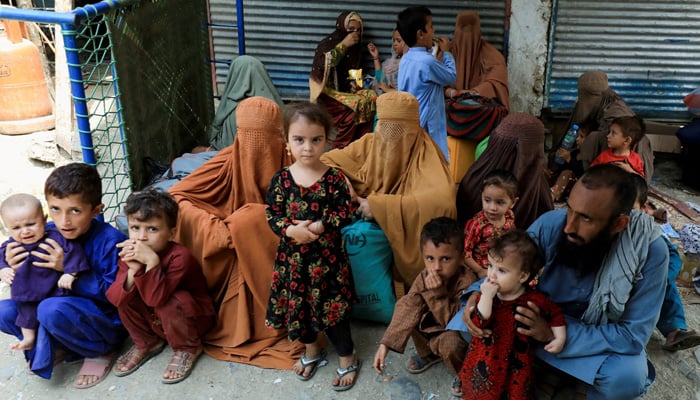Islamabad 7 August: Pakistan has begun deporting documented Afghan refugees ahead of its September 1 deadline, potentially affecting over 1 million Afghans, the United Nations reports.
This action, part of the Illegal Foreigners Repatriation Plan (IFRP) started in 2023, has sparked concerns from the United Nations High Commissioner for Refugees (UNHCR) for violating international commitments.
On August 5, the federal government notified provinces that the deportation of over 1.3 million Afghan refugees with Proof of Registration (PoR) cards will formally start on September 1. The Ministry of Interior announced that voluntary returns of PoR cardholders are already underway, while the repatriation of Afghan Citizen Card (ACC) holders and undocumented migrants continues under the IFRP.
The UNHCR noted arrests and deportations of legally registered Afghans across Pakistan, with spokesperson Qaisar Khan Afridi telling Reuters that hundreds of PoR cardholders were detained and sent back to Afghanistan from August 1 to August 4. The agency criticized these actions as a breach of international law, calling for a “humane, voluntary, and phased” repatriation process.
Over 1.3 million Afghans hold PoR cards, granting legal refugee status, while 750,000 others have ACCs, recognizing their Afghan nationality without refugee protections. Many have resided in Pakistan since the 1980s, escaping ongoing conflict in Afghanistan.
The UNHCR warned that rapid, large-scale deportations could endanger Afghan refugees and destabilize the region. Pakistan’s government cites security issues, linking Afghan nationals to militant activities and crime, claims Afghanistan denies, calling the deportations coercive.
Since 2023, over 1 million Afghans have left Pakistan, with 315,000 returning in 2025, including 51,000 forcibly removed, per UNHCR figures. Aid groups highlight Afghanistan’s humanitarian crisis, with returnees facing scarce housing, employment, and services.
The Ministry of Interior instructed the National Database and Registration Authority (NADRA) to handle deregistration at transit points and border terminals, with the Federal Investigation Agency (FIA) aiding at crossings. The ministry stressed coordination with the Taliban-led Afghan government and the UNHCR.
Amnesty International and others have urged Pakistan to suspend the IFRP and extend PoR cards, expiring June 30, 2025, to uphold non-refoulement, the principle barring the return of refugees to persecution.









